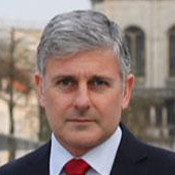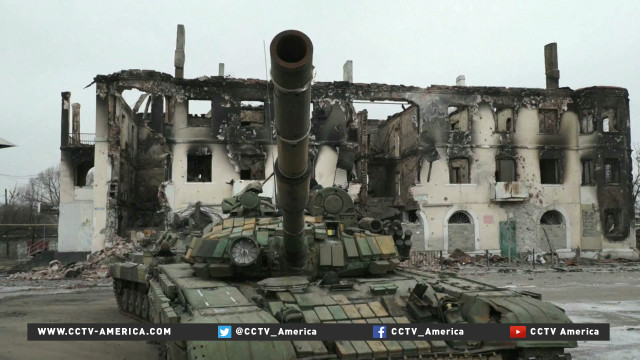The Ukraine crisis dominated talks during the third and final day of the Munich Security Conference. A summit among France, Germany, Russia and Ukraine is scheduled for Wednesday in Minsk. CCTV’s Jack Barton reported this story from Munich.
As officials at the Munich Security Conference continued to debate long-term solutions to the conflict in Ukraine the leaders of Russia, Ukraine, France and Germany spoke by phone to focus on an urgent ceasefire.
Berlin announced peace talks aimed at ending the fighting would be held in Minsk on Wednesday.

Germany’s foreign minister has remained cautious.
“It has to be clear to Moscow as well that there is only a good future for Russia with Europe, together with Europe, and not against Europe,” German Foreign Minister Frank-Walter Steinmeier said.
The Transatlantic division emerged at the conference as U.S. Senator John McCain described Germany’s refusal to send defensive weapons to Ukraine as “foolishness”.
“Putin does not want a diplomatic solution. He wants to dominate Ukraine, as well as Russia’s other neighbours. He may make tactical compromises here or there, but just as a prelude to further aggression, mark my words,” Sen. McCain. R-Ariz., said.
U.S. Secretary of State John Kerry played down the rift.
“There is no division, there is no split — I keep hearing people trying to create one — we are united, we are working closely together, we all agree that this challenge will not end through military force, we are united in our diplomacy,” Kerry said. “But the longer that it takes, the more the off-ramps are avoided, the more we will be forced to raise the costs on Russia and its proxies.”
Kerry also held an unscheduled discussion on Tehran’s nuclear program with his Iranian counterpart who said a deal could and should be done at the next round of official talks.
“I do not believe another extension is in the interest of anybody, as I did not believe this extension was either necessary or useful,” Iran Foreign Minister Mohammad Javad Zarif said.
On the final day of the conference there was a chance for delegates to shift their focus to global issues.
The debate continued about the rise of the Islamic State in Iraq and Syria and how to deal with their threats.
Other concerns such as domestic terrorism, climate change, energy security and the Ebola outbreak in west Africa were also discussed.
The crisis in Ukraine discussions were effectively transformed into informal peace talks that many hope might conclude with a ceasefire agreement in Minsk.
 CGTN America
CGTN America

